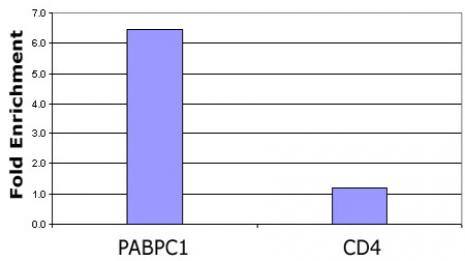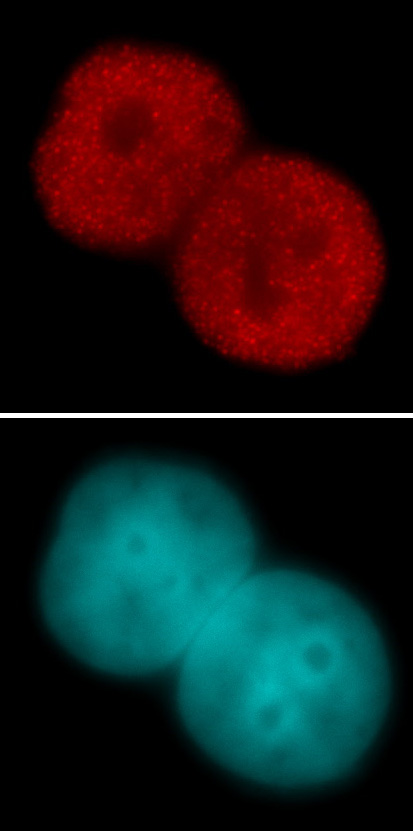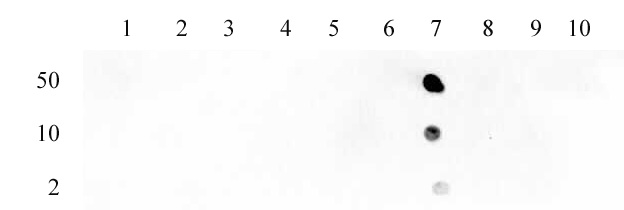Histone H3K23ac antibody (pAb)
Host / Isotype
Rabbit / Serum
Reactivity
Human, Wide Range Predicted
Applications
ChIP, DB, ICC, IF, IP, WB
Cat No : 39131,39132 39131
Synonyms
Validation Data Gallery
Product Information
| Tested Applications |
ChIP, DB, ICC, IF, IP, WB
Applications Validated by Active Motif: ChIP: 10 ul per ChIP ICC/IF: 1:500 - 1:1,000 dilution WB*: 1:1,000 - 1:5,000 dilution For optimal results in Western blotting, primary antibody incubations should be performed overnight at 4°C. Individual optimization may be required. *Note: many chromatin-bound proteins are not soluble in a low salt nuclear extract and fractionate to the pellet. Therefore, we recommend a High Salt / Sonication Protocol when preparing nuclear extracts for Western Blot. |
| Tested Reactivity | Human, Wide Range Predicted |
| Host / Isotype | Rabbit / Serum |
| Class | Polyclonal |
| Type | Antibody |
| Modification | Acetylated |
| Immunogen | This Histone H3 acetyl Lys23 antibody was raised against a peptide including acetyl-lysine 23 of histone H3. |
| Full Name | Histone H3K23ac antibody (pAb) |
| Synonyms | histone H3, histone, H3, histone-H3, histoneH3, pAb, polyclonal, H3 AcK23, Histone H3 Acetyl Lys23, Histone H3 Acetyl K23, Histone H3 Ac Lys23, H3 Acetyl Lys23, H3 Acetyl K23, H3 Ac Lys23, Histone H3 Acetylated Lysine 23, Histone H3 Acetyl Lysine23, H3 Acetylated Lysine 23, H3 Acetyl Lysine23, antibody, antibodies, chip, chromatin immunoprecipitation, H3K23Ac, sample |
| Molecular weight | 17 kDa |
| GenBank accession number | NP_003522 |
| RRID | AB_2793165 |
| Purification Method | None |
| Buffer | Rabbit serum containing 30% glycerol and 0.035% sodium azide. Sodium azide is highly toxic. |
| Storage | Some products may be shipped at room temperature. This will not affect their stability or performance. Avoid repeated freeze/thaw cycles by aliquoting items into single-use fractions for storage at -20°C for up to 2 years. Keep all reagents on ice when not in storage. |
Background Information
Histone H3 is one of the core components of the nucleosome. The nucleosome is the smallest subunit of chromatin and consists of 147 base pairs of DNA wrapped around an octamer of core histone proteins (two each of Histone H2A, Histone H2B, Histone H3 and Histone H4). Chromatin is subject to a variety of chemical modifications, including post-translational modifications of the histone proteins and the methylation of cytosine residues in the DNA. Reported histone modifications include acetylation, methylation, phosphorylation, ubiquitylation, glycosylation, ADP-ribosylation, carbonylation and SUMOylation; these modifications play a major role in regulating gene expression. Lysine N-e-acetylation is a dynamic, reversible and tightly regulated protein and histone modification that plays a major role in chromatin remodeling and in the regulation of gene expression in various cellular functions. In estrogen-responsive genes, histone H3 Lys18 is acetylated by CBP/p300 following estrogen stimulation, leading to acetylation of histone H3 Lys23 and methylation of Arg17 by CARM1. These events lead to transcriptional activation of the genes.




